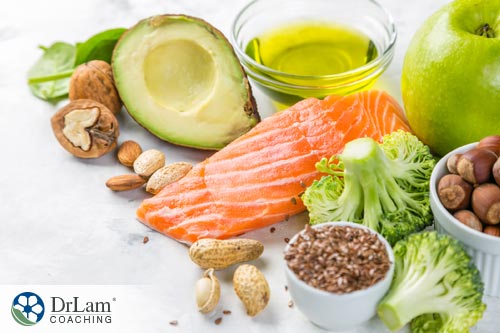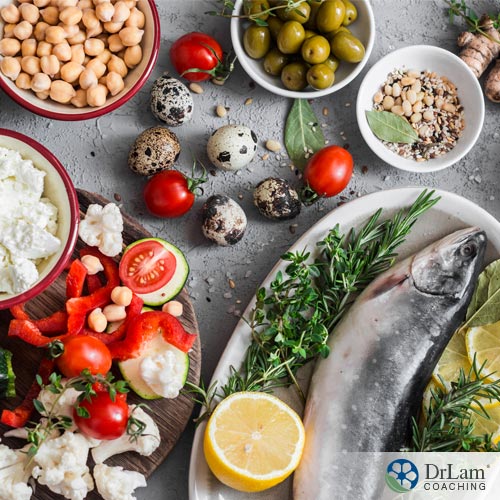 Is it possible to enjoy being on a diet? This question is rarely answered with a resounding, “yes.” Most people associate dieting with restrictions. Eat this. Don’t eat that. Count the carbs, the calories, the fat, the good and bad cholesterol, the hidden additives, the organic versus the non-organic, the expensive versus the cheap. The rules of dieting are confusing and aggravating, and if you’re really paying attention, they change almost weekly with new scientific data. However, the Mediterranean diet is not a diet in the restrictive sense - it refers to what people in the Mediterranean region tend to eat, and the incredibly good health it seems to give them. This relaxed approach to eating might be just what you are looking for in your life.
Is it possible to enjoy being on a diet? This question is rarely answered with a resounding, “yes.” Most people associate dieting with restrictions. Eat this. Don’t eat that. Count the carbs, the calories, the fat, the good and bad cholesterol, the hidden additives, the organic versus the non-organic, the expensive versus the cheap. The rules of dieting are confusing and aggravating, and if you’re really paying attention, they change almost weekly with new scientific data. However, the Mediterranean diet is not a diet in the restrictive sense - it refers to what people in the Mediterranean region tend to eat, and the incredibly good health it seems to give them. This relaxed approach to eating might be just what you are looking for in your life.
The Mediterranean culture is one that is rich in the resources of the land. This area of the world is traditionally considered around Spain and Italy. The men and women here were farmers and those who lived off the land. They grew grains, vegetables, vineyards of grapes, olive trees, and other fruits. Their meat was found through fishing and the livestock that they managed. Their simple view of life helped them to enjoy their labors. The Mediterranean people are very kind and sociable people, who are still known for their hospitality.
Mealtimes were something to be relished; they were not a rushed event of takeout food or fast food. Loving hands prepared the Mediterranean diet, and they took the time to enjoy the food. Lavish dinners would last for hours when friends and family came to visit.
If you were to look at the traditional Mediterranean diet, you would not find packaged food. There are no quick boxed meals. Food purchases are not in bulk; they are made in small amounts to keep food as fresh as possible.
Large chain stores are not the typical shopping destination for those on the Mediterranean diet. Purchases were normally made at focused locations such as the dairy store for fresh Greek yogurt. Meat came from a butcher, extra vegetables from a nearby farm, and loaves of bread were made at home from the grains that grew in their fields.
For you today, obtaining foods from individual stores may be impossible as the bulk food stores have taken over. However, it is still possible to get fresh fruits and vegetables through farmer’s markets, roadside stands, and organic stores. As you can take the time to leisurely shop through these places to find the best ingredients, you can start to appreciate their benefits and enjoy what you might make with them. Focus on buying local produce, growing food yourself, and making as much as you can at home, while taking the time to enjoy what you eat.
 Olive trees are common in the Mediterranean, and so most fat added to food comes from these. Rarely is butter (or other fats for cooking) used in the Mediterranean diet. Olive oil is a very healthy oil. It is high in oleic acid which has been found to have positive effects on reducing inflammation. Specifically, the inflammation linked to clogged arteries, blood sugar problems, and inflamed joints can be lowered.
Olive trees are common in the Mediterranean, and so most fat added to food comes from these. Rarely is butter (or other fats for cooking) used in the Mediterranean diet. Olive oil is a very healthy oil. It is high in oleic acid which has been found to have positive effects on reducing inflammation. Specifically, the inflammation linked to clogged arteries, blood sugar problems, and inflamed joints can be lowered.
It can be scary for someone who has “dieted” their whole life to suddenly start adding oil to their foods, but many studies have shown that those who use olive oil do not gain excessive amounts of weight as compared to other types of fats. One study followed 7368 students for two years while they were eating the Mediterranean diet, and they did not have an increased risk of developing obesity.
As with all healthy foods, it is essential to make sure you get the right olive oil as many cheap competitors can dilute their oils with other refined oils. The best olive oil is extra-virgin olive oil that has been quality certified.
The Mediterranean diet is not a vegetarian diet; it is full of fresh, high-quality proteins in the right amounts. Grass-fed beef, chicken, and goat meat are eaten less frequently, while fish and seafood are eaten almost daily. The historical reason behind this was that the cows, chickens, and goats were used for the milk and eggs they provided. The farmers needed them for other things, so they didn’t slaughter them often for meat. With the ocean and lively streams nearby, more seafood could be caught quickly and enjoyed more frequently.
Healthy fats are essential to help you feel full while eating less, which can lead to weight loss over time. Seafood can provide healthy fats, and it also has the added benefit omega-3 fatty acids. These fatty acids are well known for their ability to help reduce heart disease and decrease inflammation.
When eating the Mediterranean diet, it is important to remember why decreasing inflammation in the body is so important. The body keeps a watchful eye over itself through the NeuroEndoMetabolic (NEM) Stress Response. The response is sent out through six pathways throughout the body. These pathways are the cardionomic, hormonal, neuroaffect, inflammatory, bioenergetic, and detoxification circuits.
Plant foods that decrease inflammation are essential in the Mediterranean diet because inflammation can occur from eating foods that are harmful. Fatty red meats, sugars, and processed foods create inflammation through the NEM stress response as the body struggles to process sudden loads of saturated fats, added toxins, and glucose spikes. While you may not even know that the inflammation is present, the body is fighting against it.
 If the inflammation continues unchecked, it can turn into Adrenal Fatigue Syndrome (AFS) as the body tries to produce more cortisol to help cool-off the inflammation. Cortisol is a powerful anti-inflammatory that works to return the body to normal. However, it is not made in unlimited supply. When short-term inflammation lasts for months and years, the body eventually begins to tire out. Symptoms of AFS can start to appear. They could appear as:
If the inflammation continues unchecked, it can turn into Adrenal Fatigue Syndrome (AFS) as the body tries to produce more cortisol to help cool-off the inflammation. Cortisol is a powerful anti-inflammatory that works to return the body to normal. However, it is not made in unlimited supply. When short-term inflammation lasts for months and years, the body eventually begins to tire out. Symptoms of AFS can start to appear. They could appear as:
While none of the symptoms directly point to AFS, the whole picture shows that the body is struggling and beginning to fail. When dealing with AFS, it is essential to have a provider who is trained in recognizing these symptoms, as physicians do not traditionally identify them.
The right foods should be eaten to decrease inflammation and help your body heal. Supplements may help; however, do not start without proper approval from your healthcare provider. A body that is struggling with AFS cannot handle large amounts of new foods due to the fact it may not be able to digest them appropriately.
 The Mediterranean diet is not a restrictive plan; it is a lifestyle with a focus on enjoying what you are eating and enjoying life. It is stepping back and relaxing while you are eating, obtaining foods from the freshest sources and eating them today. Olive oil is a healthy oil, and it can help to reduce inflammation in your heart and prevent cancers. Most importantly, the Mediterranean diet can help you fight against AFS and keep the NEM Stress Response fighting strong. Take the time to enjoy the benefits that the Mediterranean diet can bring to your life.
The Mediterranean diet is not a restrictive plan; it is a lifestyle with a focus on enjoying what you are eating and enjoying life. It is stepping back and relaxing while you are eating, obtaining foods from the freshest sources and eating them today. Olive oil is a healthy oil, and it can help to reduce inflammation in your heart and prevent cancers. Most importantly, the Mediterranean diet can help you fight against AFS and keep the NEM Stress Response fighting strong. Take the time to enjoy the benefits that the Mediterranean diet can bring to your life.
The following recipes are just a few of the great foods you can enjoy on the Mediterranean diet.
Yes, you can eat chocolate on the Mediterranean diet. You just need to make sure that the chocolate is not loaded down with milk and processed sugars. Unrefined dark chocolate is best, and it can be enjoyed a few times a week!